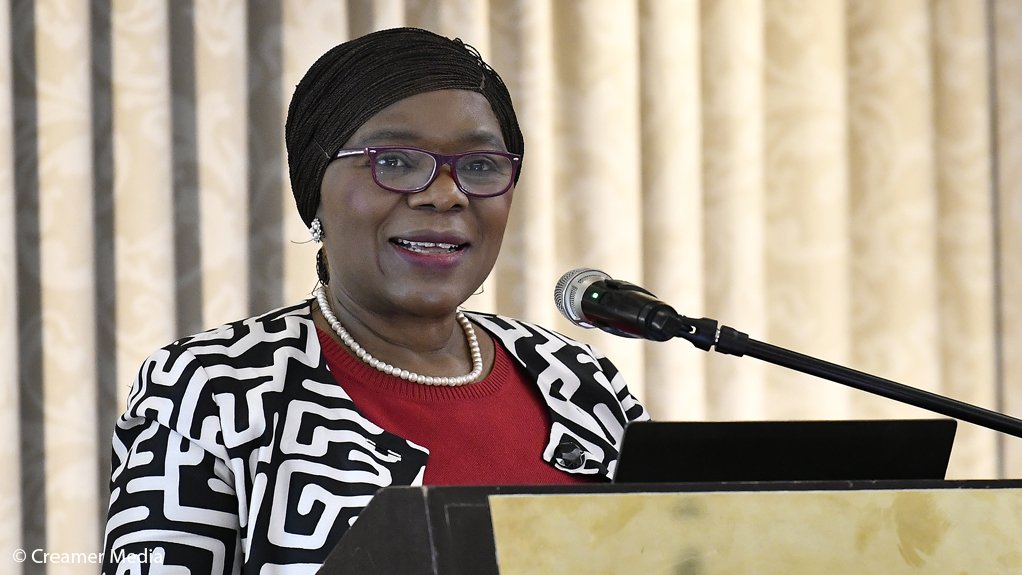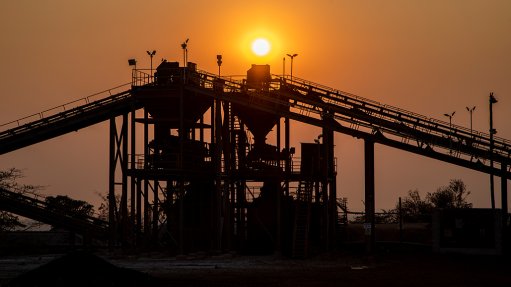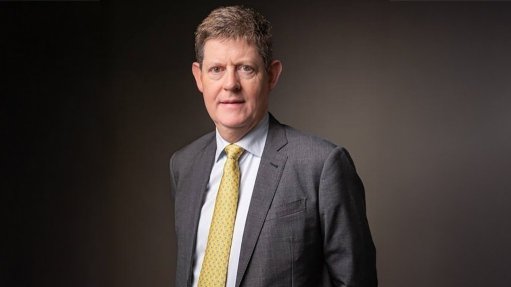‘The Vuca world is a lie’ – Madonsela challenges modern leadership mantra


Former Public Protector and Stellenbosch University social justice chair Professor Thuli Madonsela
Photo by Creamer Media's Donna Slater
Former Public Protector and Stellenbosch University Law Trust Chair in Social Justice Professor Thuli Madonsela has challenged the popular notion that the present era is uniquely marked by volatility, uncertainty, complexity and ambiguity – often referred to by the acronym Vuca.
Speaking at the Colliery Training College’s (CTC’s) sixtieth anniversary celebration in Emalahleni, on September 18, she said the framing of Vuca as a modern phenomenon was misleading.
“We've been lied to that we live in the Vuca world. That's a lie. Stone Age people lived in the Vuca world. There is no time in history where the world was not volatile, uncertain, complex and ambiguous. Perhaps we could say, in our time, things are just moving far more rapidly,” she said.
The term Vuca originated in the late 1980s at the US Army War College, where it was used to describe the post-Cold War strategic environment. It later entered business and leadership discourse, when it was widely adopted by companies, educators and policymakers as a framework for understanding modern-day challenges.
It has become particularly popular among contemporary political, social and economic commentators for describing the state of the post-pandemic world.
Madonsela argued that, while rapid change had intensified in contemporary times, portraying the current period as uniquely difficult created unnecessary fear, particularly among younger generations.
“It creates anxiety for young people when we say ours is the worst time ever, because it then feels helpless,” she noted.
Instead, she urged resilience and adaptability.
“We need agility, which is moving fast. We need resiliency, which is the ability to bounce, but not back. I prefer bouncing forward, because if you bounce back, you’re likely to fall again.
“Lastly, you need grit, the ability to stand the test of time. Embrace technology as a partner, embrace community as a partner. Embrace uncertainty as a partner,” she said.
Turning to South Africa’s socioeconomic challenges, Madonsela highlighted widespread joblessness and inequality, while praising CTC’s role in addressing youth unemployment.
“We face a rapidly changing world, marked by a confluence of challenges such as economic stagnation, poverty, inequality, and, in our country, we have the second highest unemployment in the world. The other negative achievement we are excelling in is we’re the most unequal country in the entire world,” she said.
Local unemployment figures were particularly troubling, she added.
“We are at crossroads as we go forward, and as per crossroads, I would like us to count on young people. Overall unemployment in Emalahleni, I’m told, is at 54%.
“Then youth unemployment in the rest of the country is over 60%. I shudder to think what youth unemployment is like in this community. But for every challenge that you have, it's also a possibility for you to be the solution again,” she told attendees.
Madonsela also called for a shift in thinking around sustainable development. She described it as an opportunity to reskill, innovate and explore energy solutions beyond conventional solar and wind.
“Currently, when it comes to solar and wind, we are on the back foot in South Africa. With coal, we had our own coal and we were manufacturing. With green energy, unless our young people move in and innovate, we will find ourselves being consumers, where everything is dropped on us.
“That’s not sustainable. So here’s an opportunity for young people to partner with Eskom, to partner with the mining industry, to ensure that inclusion and opportunity is not just defined by the industry,” she said.
Founded in 1964, the CTC is a nonprofit training institution serving the coal mining industry, with a focus on developing technical skills and safety standards. Its anniversary celebrations in Emalahleni marked six decades of operations and drew attention to the institution’s role in training future generations for the mining and energy sectors.
Article Enquiry
Email Article
Save Article
Feedback
To advertise email advertising@creamermedia.co.za or click here
Announcements
What's On
Subscribe to improve your user experience...
Option 1 (equivalent of R125 a month):
Receive a weekly copy of Creamer Media's Engineering News & Mining Weekly magazine
(print copy for those in South Africa and e-magazine for those outside of South Africa)
Receive daily email newsletters
Access to full search results
Access archive of magazine back copies
Access to Projects in Progress
Access to ONE Research Report of your choice in PDF format
Option 2 (equivalent of R375 a month):
All benefits from Option 1
PLUS
Access to Creamer Media's Research Channel Africa for ALL Research Reports, in PDF format, on various industrial and mining sectors
including Electricity; Water; Energy Transition; Hydrogen; Roads, Rail and Ports; Coal; Gold; Platinum; Battery Metals; etc.
Already a subscriber?
Forgotten your password?
Receive weekly copy of Creamer Media's Engineering News & Mining Weekly magazine (print copy for those in South Africa and e-magazine for those outside of South Africa)
➕
Recieve daily email newsletters
➕
Access to full search results
➕
Access archive of magazine back copies
➕
Access to Projects in Progress
➕
Access to ONE Research Report of your choice in PDF format
RESEARCH CHANNEL AFRICA
R4500 (equivalent of R375 a month)
SUBSCRIBEAll benefits from Option 1
➕
Access to Creamer Media's Research Channel Africa for ALL Research Reports on various industrial and mining sectors, in PDF format, including on:
Electricity
➕
Water
➕
Energy Transition
➕
Hydrogen
➕
Roads, Rail and Ports
➕
Coal
➕
Gold
➕
Platinum
➕
Battery Metals
➕
etc.
Receive all benefits from Option 1 or Option 2 delivered to numerous people at your company
➕
Multiple User names and Passwords for simultaneous log-ins
➕
Intranet integration access to all in your organisation



















